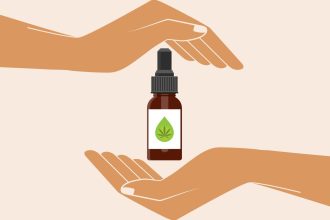CBD has been shown to be effective in treating anxiety and depression in humans. Anecdotal evidence also suggests that it can be helpful for other mental health conditions such as bipolar disorder, OCD, PTSD, and even schizophrenia.
- 1. CBD is not psychoactive
- 2. CBD can be derived from both hemp and marijuana plants
- 3. CBD is thought to work by interacting with the body’s endocannabinoid system
- 4. CBD is available in a variety of forms
- 5. CBD is generally considered safe
- 6. CBD may help to relieve anxiety and depression symptoms
- 7. CBD may also have other potential therapeutic applications
- 8. Clinical trials are still needed to confirm the efficacy of CBD
- 9. CBD should be used with caution in people who take medications for mental health conditions
- 10. Talk to your doctor before taking CBD
However, there is still a lot of research to be done in order to understand the full extent of CBD’s therapeutic potential. In the meantime, here are 10 things you should know about using CBD for anxiety and depression:
1. CBD is not psychoactive
Contrary to popular belief, CBD does not produce any psychoactive effects. This means that it will not make you feel “high” or “stoned” like THC-rich cannabis strains can.
2. CBD can be derived from both hemp and marijuana plants
CBD can be extracted from both hemp and marijuana plants. However, it is important to note that CBD products derived from marijuana plants may contain trace amounts of THC (tetrahydrocannabinol), the psychoactive compound found in cannabis.
3. CBD is thought to work by interacting with the body’s endocannabinoid system
The endocannabinoid system is a network of receptors and chemicals that helps to regulate various functions in the body, such as mood, appetite, pain, and inflammation. CBD is thought to interact with this system in order to produce its therapeutic effects.
4. CBD is available in a variety of forms
CBD is available in a variety of forms, including oils, tinctures, capsules, edibles, and topical creams. It can also be vaporized using an e-cigarette or vape pen.
5. CBD is generally considered safe
CBD is generally considered safe, with few reported side effects. The most common side effects include fatigue, diarrhea, and changes in appetite.
6. CBD may help to relieve anxiety and depression symptoms
A growing body of research suggests that CBD may be effective in treating anxiety and depression. One study found that CBD oil was able to significantly reduce anxiety levels in children with social anxiety disorder (SAD). Another study found that CBD improved symptoms of post-traumatic stress disorder (PTSD) and social anxiety disorder in rats.
7. CBD may also have other potential therapeutic applications
In addition to anxiety and depression, CBD is also being studied for its potential to treat a variety of other conditions, including pain, inflammation, cancer, and Alzheimer’s disease.
8. Clinical trials are still needed to confirm the efficacy of CBD
While the research on CBD is promising, it is still in its early stages. More clinical trials are needed to confirm the efficacy of CBD for various conditions.
9. CBD should be used with caution in people who take medications for mental health conditions
CBD can interact with certain medications used to treat mental health conditions such as schizophrenia and bipolar disorder. As a result, it is important to use caution when taking CBD if you are taking any medications for mental health conditions.
10. Talk to your doctor before taking CBD
If you are interested in trying CBD, it is important to speak with your doctor first. This is because CBD may interact with certain medications or medical conditions. Your doctor can help you determine if taking CBD is right for you.
While research on CBD is still in its early stages, the anecdotal evidence suggests that it could be an effective treatment for anxiety and depression. If you are considering trying CBD, it is important to speak with your doctor first to ensure that it is safe for you.















